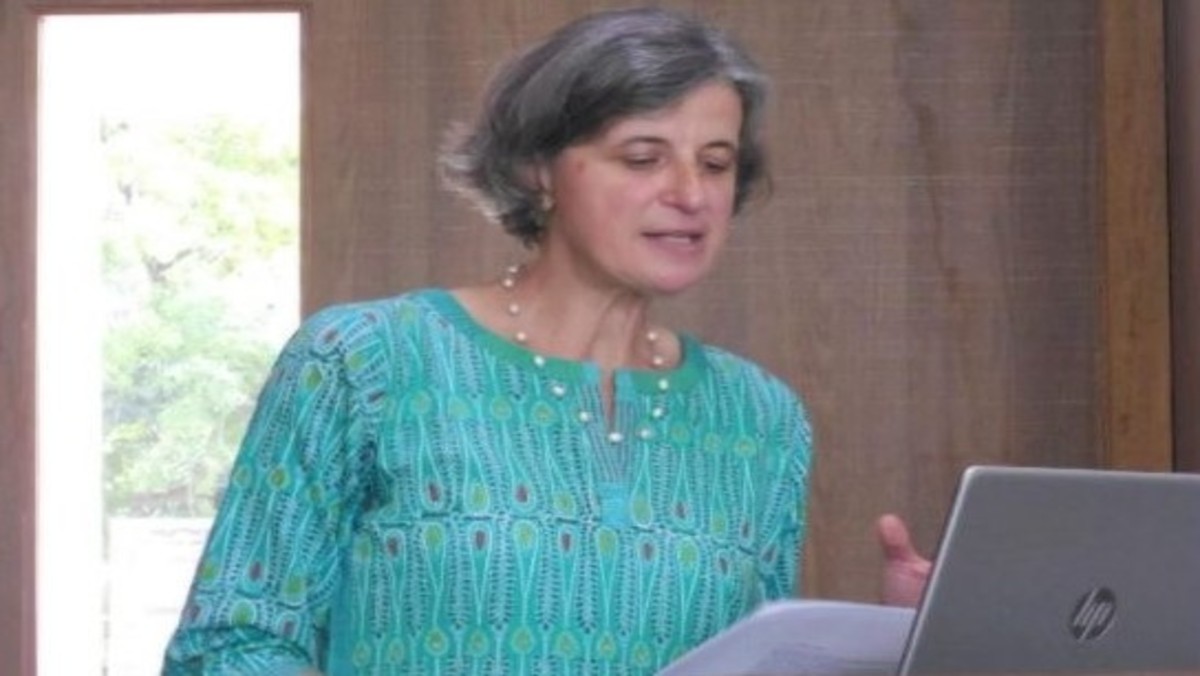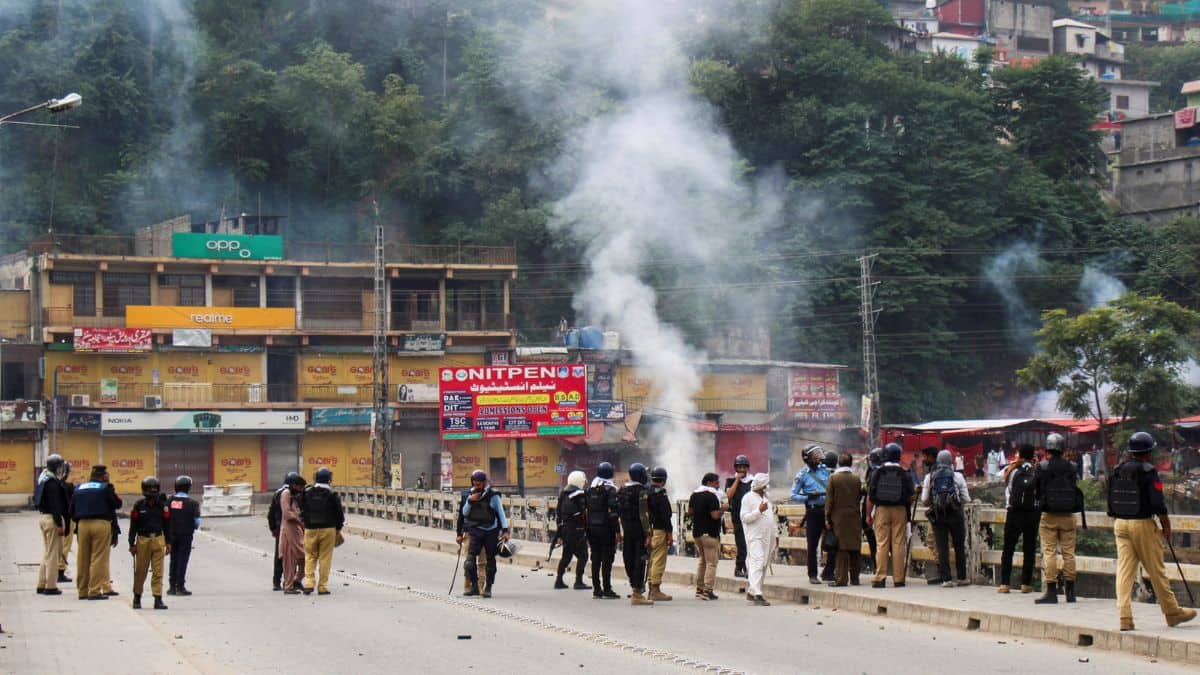In the early hours of October 21, Francesca Orsini, a prominent UK-based scholar of Hindi and ‘South Asian’ literature, arrived at Delhi’s Indira Gandhi International Airport only to be denied entry despite holding a valid five-year e-tourist visa. This incident quickly sparked a wave of criticism from leftist intellectuals and politicians, who decried it as a blow to academic freedom and labelled it ‘India’s loss’. Yet, a closer examination reveals a more nuanced story: one where visa rules were breached and where India’s linguistic heritage remains unscathed by the absence of a foreign expert.
With over 615 million Hindi speakers worldwide, including 422 million native speakers in India alone as per the latest estimates derived from the 2011 census projections, the notion that Indians awaited a European scholar to enlighten them on their own language seems not just exaggerated but absurd.
As such, the country must follow a thumb rule: Whenever you see the “South Asian” tag in the name of a think tank, media house, NGO or institution, dump it. The stupid adjectives Americans use—and have taught the rest of the West to use—to identify people of different regions of the world inadvertently spell p-r-o-p-a-g-a-n-d-a.
Delhi Airport Incident
Orsini, who had just attended a conference in China, was stopped at immigration around midnight. Her passport was confiscated, and after several hours of waiting, she was informed of her deportation without being allowed to enter the country. She was subsequently flown back to Hong Kong en route to London.
Impact Shorts
More ShortsIndian officials cited a blacklist entry dating back to March this year, stemming from previous visa violations. This was no arbitrary decision; it was on the lines of India’s no-nonsense immigration protocols for foreigners. The event unfolded against a backdrop of heightened scrutiny on international visitors, especially those with histories of engaging in activities deemed incompatible with their visa status.
Left-leaning voices, including Congress leader Jairam Ramesh and historian Ramachandra Guha, swiftly condemned the move. Ramesh described it as symptomatic of the Modi government’s ‘hostility towards independent scholarship’, while others echoed sentiments of an attack on intellectual exchange. Social media platforms like X buzzed with posts from leftist influencers and trolls lamenting the denial, with the portrayal of Orsini as a victim of authoritarian overreach. These reactions deliberately overlooked the procedural realities, framing the incident as a cultural tragedy rather than a routine enforcement of rules.
Francesca Orsini, Who?
Born in Italy and now Professor Emerita at the School of Oriental and African Studies (SOAS), University of London, Orsini has built a distinguished career in Hindi and Urdu studies. Her seminal work, The Hindi Public Sphere 1920-1940: Language and Literature in the Age of Nationalism, published in 2002 and translated into Hindi in 2010, explores the role of language in India’s nationalist movement. Other notable publications include Before the Divide: Hindi and Urdu Literary Culture (2011) and contributions to the history of the book in South Asia. With over 45 citations for her book on history work alone, Orsini’s research has illuminated multilingual literary histories in regions like Awadh from the 15th to the early 20th century.
Orsini’s efforts have undoubtedly promoted Hindi abroad, fostering interest in South Asian literature among non-Indian audiences. For instance, through ERC-funded projects on multilingual locals, she has bridged cultural gaps, making Hindi accessible to global scholars.
Yet, the intellectual’s influence is predominantly in Western academic circles, where Hindi learners number in the thousands at universities like SOAS and Illinois, rather than in India itself, home to the world’s largest Hindi-speaking population.
Outlandish ‘India’s Loss’ Narrative
The assertion that Orsini’s denial represents ‘India’s loss’ borders on the preposterous. India boasts over 500 million Hindi speakers today, making it the most spoken language within the country and the third globally after Mandarin and English. Institutions like the Central Hindi Directorate and countless universities produce volumes of research annually, dwarfing the need for external validation. The idea that Indians require a European to ‘teach’ them Hindi echoes colonial-era paternalism, ignorant of the vibrant domestic literary scene.
Orsini’s value lies abroad, where she has helped cultivate interest among diaspora communities and international students. For example, Hindi is taught in over 100 universities worldwide, with enrolment rising by 20 per cent in the US alone between 2016 and 2021, per Modern Language Association data. Her deportation does not halt this; virtual collaborations and publications continue unabated. As one X user noted amid the outcry, India’s linguistic pride remains intact without such interventions.
False Claim of No Given Reason
Detractors have falsely claimed that no reason was provided for Orsini’s turnaround. In truth, Ministry of Home Affairs officials confirmed violations of visa conditions, including engaging in research activities on a tourist visa—a clear breach under India’s e-visa guidelines, which prohibit work or academic pursuits. Furthermore, Orsini had signed petitions critical of the Indian government, such as those on the Citizenship Amendment Act, potentially falling under ‘anti-government’ activities as defined by the Foreigners Act and Section 124A of the Indian Penal Code.
India’s rules are explicit: foreigners must not participate in propaganda against the granting government, with violations leading to blacklisting or deportation. In similar cases, anthropologists Filippo Osella and academic Nitasha Kaul were denied entry for comparable reasons, for instance. This is not unique to India; the UK deported 7,000 foreign students in 2014 over alleged cheating, yet faced little global backlash. The current US administration has turned denials for disagreements into its SOP; they turn down not merely individuals but countries. A nation irks President Donald Trump, and it’s out of all trade talks with American delegates!
Hindi’s Robust Presence at Home, Abroad
Hindi’s global footprint needs no saviour. With 581 million speakers worldwide, including significant diaspora in the US (over 1 million), the UK and Mauritius, the language thrives through Bollywood, literature and digital media. Unesco reports growing interest abroad, with Hindi apps and online courses seeing a 30 per cent uptake surge post-pandemic. In India, the 2023 National Education Policy promotes multilingualism, ensuring Hindi’s dominance without foreign input.
Orsini can continue her advocacy from afar, as her work on Hindi-Urdu divides has already influenced global curricula. India’s loss? Hardly – with annual book fairs like the Delhi World Book Fair attracting millions, domestic scholarship eclipses external contributions.
Lessons on Visas, Academic Boundaries
The Francesca Orsini episode underscores the tension between academic freedom and national security. Our new immigration rules, effective from September, rightly target foreigners linked to anti-India acts, including terrorism or sedition-like activities. While the left decries it as stifling, as expected from a hurt ecosystem, it’s essential for sovereignty, especially amid global diaspora weaponisation.
Ultimately, Orsini’s case is a reminder that visas are privileges, not rights. Leftist lamentations may fuel narratives of intolerance, but facts reveal a straightforward enforcement. Hindi endures, India progresses and scholarship adapts; no loss here.
The author is a senior journalist and writer. Views expressed in the above piece are personal and solely those of the author. They do not necessarily reflect Firstpost’s views.


)

)
)
)
)
)
)
)
)



